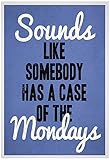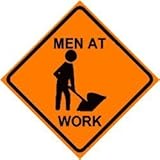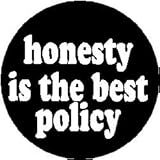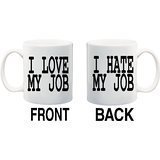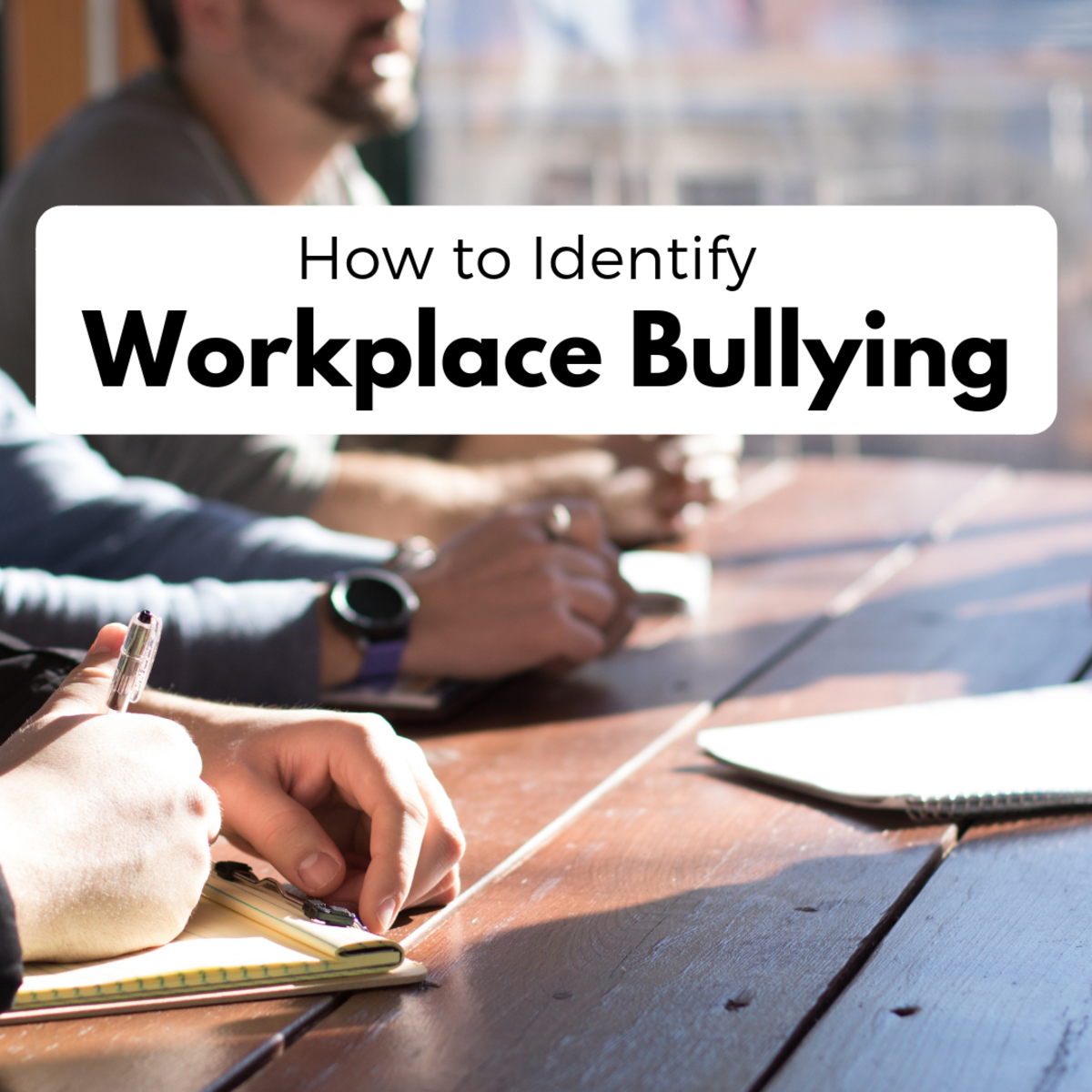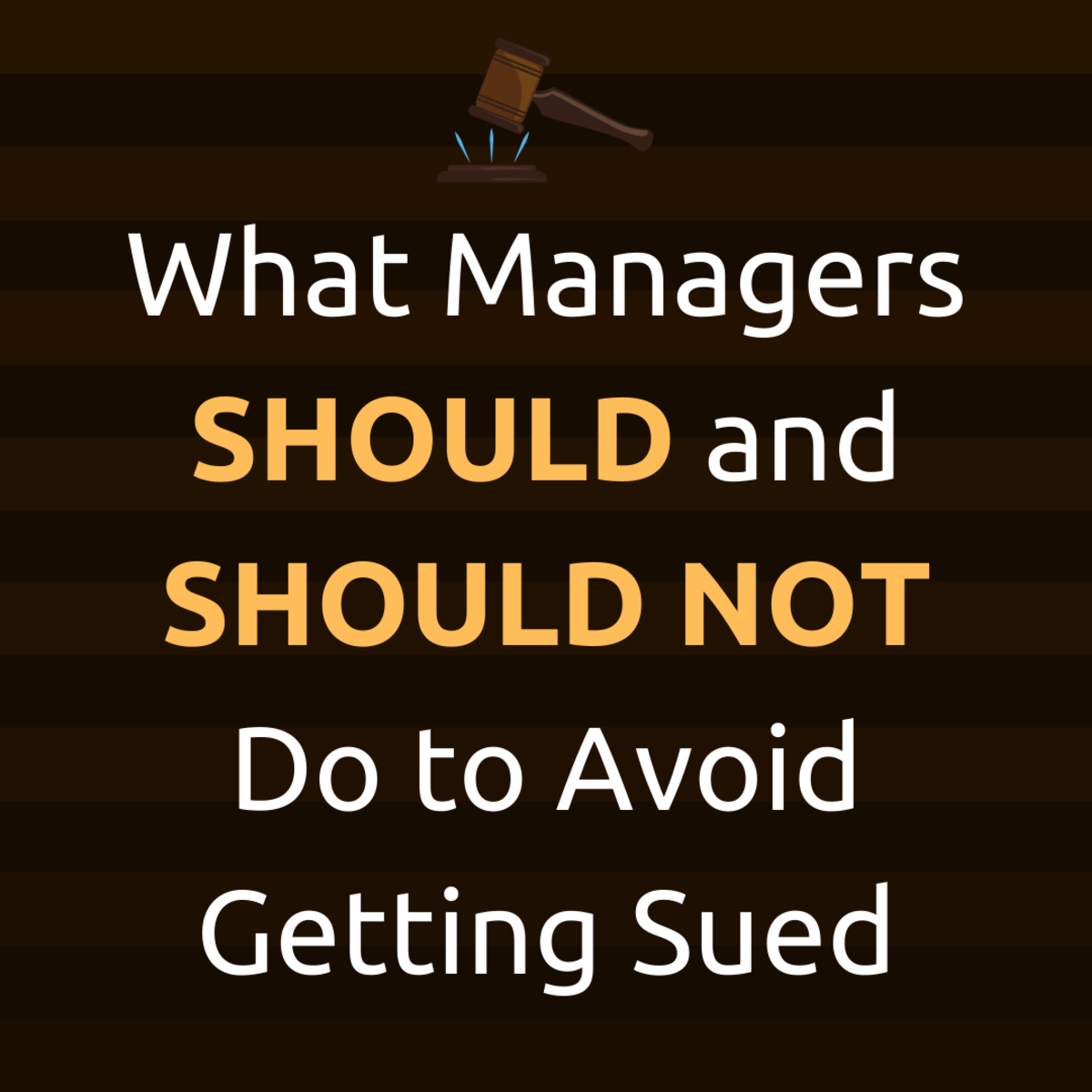How to Keep the Job You've Got

Invest in Your Company and You'll Invest in Yourself!
I'm not talking about calling your stockbroker and buying up shares of stock in your company. I'm talking about putting more effort into the success of your company and those around you. It will pay dividends far greater than those stock holdings will. It will mark you as an employee who is devoted to, and willing to commit to, the long-term success of the organization that provides you with a living.
Put more effort, not less, into what you're doing. This doesn't mean killing yourself with over-work -- it means working just a little bit harder. If it's just enough that you notice it, others will notice it, too. Get there a few minutes earlier; leave a couple of minutes later; tidy your cubicle or your workplace before you go. Spend a little more time with each customer; make your work product a little bit better. If customers notice, so will your boss.
Get in the habit of doing more for your company, and you may be pleasantly surprised to find that your company does more for you. Competition for jobs is tremendous right now, and, in a very real sense, today's worker is often competing to keep the job they've got. Just as the old saying goes about how you don't need to be the fastest runner in the group when you're being chased by a bear, you only need to run faster than the guy next to you -- when you're faced with potential layoffs or downsizing, you don't need to be the greatest worker in the entire organization -- just better than the one you're next to. Sound harsh? It is. But it's a harsh and trying time to be in the workforce.
Don't Cheat the Company.
This is a no-brainer, right? Unfortunately, it's also still a common cause for termination in a lot of job situations. Even if your ethics are wiggly, you're still trying to keep a job -- and cheating the company is going to get you fired. Let's look at a few common "cheats" that employees do. All of these are offenses that are cause for dismissal -- but many employees don't see them that way until the day the boss calls them into the office and sends them home for good.
- Stealing office supplies -- or any other items that belong to your company. Guess what? Stealing is stealing. Taking home that box of computer disks, the red stapler, or the slab of prime rib is theft. Theft isn't just grounds for termination; it's also grounds for prosecution. Those few dollars a week from the petty cash jar? Theft. Anything you take that is not expressly given to you by a person with the authority to do so,
- Giving free products, meals, or services to your friends. This happens frequently among younger workers -- and is very prevalent in the restaurant and bar industry. Giving freebies to your friends and family members is theft. In extreme cases, cashiers at department stores will slide some items along the check-out lines without scanning them, so their friends go home with free goods; that's pretty obvious. In other cases, a barista will slide a free cup of joe to their BFF without ringing it up. Theft. Think about it: you're giving away your company's product without permission. Theft. Don't be shocked when you're fired.
- Cheating on your time card -- also known as theft of time. I have to admit: this one always amazes me. For some reason, many people think it's perfectly acceptable to be paid for hours they didn't work. Theft of time is theft of money. Your employer is paying you for services they didn't receive. If you punch in and don't work the hours that you're on the clock, make no mistake: it's theft. You might not like it, but it's the reality of it. Don't do it -- or you may find yourself unemployed, unable to collect unemployment, and facing criminal prosecution. Yes, you can be arrested for this!
- Taking money and planning to pay it back. This is called "embezzlement." In fact, the majority of embezzlers begin innocently enough -- they have a debt, often due to gambling or substance abuse, that they must pay immediately. They covertly write themselves a check on the company books, or they take some cash from the cash drawer, and they tell themselves they'll pay it back. Because they may be dealing with an addiction, they never find the means to pay it back -- and they "borrow" more. These employees often end up in prison.
Employees are creative. That's a wonderful thing. Unfortunately, they can also be criminally creative. From the bartender who doesn't ring up some items so the cocktail waitress earns more cash, to the waitress who alters the customer's credit card slip to add an extra dollar to each tip she receives, cheating is nearly always criminal and will not only get you fired, but will prevent you from unemployment benefits -- and from getting the future job you really want.
Don't Gossip.
Gossip is an insidious and malevolent presence in the workplace. I can't even count how many times the local workplace gossip was eventually terminated, even though the gossip itself wasn't the direct reason. Perhaps your company, wisely enough, has a no-gossip policy; perhaps it doesn't. Either way, it's undesirable and your employer will take notice of it. If it comes down to a situation where the company needs to downsize and they have to decide between two equally experienced and competent employees, and one is the water-cooler broadcaster, which one is going to go? That's an easy decision.
Gossip isn't a standalone issue. It is often accompanied by vindictiveness, workplace retaliation, and a negative attitude. I've rarely seen it in employees who didn't have a host of other unprofessional behaviors -- and one of those behaviors will eventually catch up with them, taking the gossip with them when they go.
Don't Be Negative!
This is a huge factor in success. Occasionally, negative employees get promoted and go on to being negative supervisors and negative managers -- but it's rare. In general, it's the more positive individual who gets the opportunities -- giving the negative, toxic people around them all the more reason to be negative and toxic! It's the same thing with keeping your job: project positive attitudes and expressions, and you're far more likely to be kept when the next workforce purge occurs.
Negativity is a habit. It's possible to break it, but like any habit, it's going to take some work. Stop yourself before whining, moaning, complaining, sniveling, or letting out that long, drawn out sigh of exasperation. Recognize that venting doesn't do you or anyone else any good -- it merely continues and expands the negativity you're feeling. Take it in baby steps, if need be: just for one day, don't share your negative stories with your co-workers. Just for one day, greet every customer with a smile. Just for one day, ask your boss how HE is doing, and listen when he answers. Keep notes, if need be, of how you're doing with the negativity stuff -- you might not even realize how bad you are, until you start making a checkmark in your planner every time you let out that verbal vomit about your lousy life.
None of these tips matter, of course, if you are one of those people who is proud of their toxicity, and loves to bring everyone around you down. The word for that is "killjoy" as in a person who loves to kill the joy of others. If there isn't already a special place in hell for killjoys, there ought to be. Some people truly like to be negative; it's part of their identity, and they cherish it. They'll never let it go. I'd like to think that most of us aren't that twisted, but that many of us just don't know how to be otherwise. It's hard work to ditch one habit and replace it with a new, healthier habit -- smokers will be the first to tell you that. Ex-smokers are proof it can be done. Think of negativity as nicotine -- you'll be better off without it.
Don't Take Sick Days When You Aren't Sick.
Yes, really! Your sick days aren't "your days to do whatever you want to do with them." Unless your company has one of those umbrella policies in which all leave time is in the same parcel and you can use it for whatever purpose you wish, your sick days (aka medical leave) are reserved for being sick. If you call in sick and you aren't, you've added dishonesty to the equation.
The employee who abuses sick time is also abusing their co-workers, who must cover their shifts. They're abusing the customer, the company, and their bosses. When they've lost their job for excessive use of medical leave, they've abused themselves and their families. The savvy boss who suspects leave abuse will analyze when sick days are used. Those Fridays and Mondays that you have "flu-like symptoms" (the sick-leave equivalent of the dog eating your homework) are a tell-tale sign that you're fond of long weekends. Calling in sick on a regular basis after your team has played on Sunday night football games is, perhaps, indicative of bottle flu -- a hangover. Those patterns may come back to bite you. You're better off avoiding the whole issue and going into work unless you justifiably are too sick to be there.
One other note on sick abuse -- you'll regret not having those days if, heaven forbid, you are struck by a catastrophic illness. Suddenly those extra paid-days off won't be there when you need them.
Never, Ever, EVER Say, "It's Not My Job" -- or It Soon Won't Be!
These are the four little words that employers (and customers) cannot stand. You might think that saying, "That's not in my job description" is witty and bold, but it will get under your bosses' skin fast -- and it'll stay there. When it comes time for layoffs, the "it's not my job" type will be gone in a heartbeat.
I realize that the world and workplace are unfair places. I know no one likes shouldering the extra responsibilities of the cubicle cruiser mentioned above, or picking up extra tasks because Julie has called in sick for the third Friday this month. But when the company has to make the difficult decision as to who must go during downsizing, let it be the other two first -- they've already proven that they're unnecessary, while you have proven that you can cover for them. It all starts with saying, "Sure, I can do that!" instead of, "It's not my job!"
Don't Talk. Do.
We all know the type: the cubicle cruiser, who pours his coffee cup in the morning and then proceeds up and down each cubicle aisle way, stopping in at office after office, leaning on the doorframe and socializing happily. He's not doing his job, and -- even worse -- he's preventing everyone else from doing theirs. Think about it: for every hour of his own work he's being paid for and not doing, he's using up two hours of company time -- his and the other person's.
Some of the more notorious cubicle cruisers I know used to complain about how over-worked they were. One particularly infamous individual actually asked for more staffing. It made me laugh. How can a boss justify asking for more people when everyone knows that half of them are being paid to have an office party? Even worse, how about those people who are selling their candles, kitchen supplies, cosmetics, or even insurance on the side while working?
Let's do a quick quiz: you're the boss. You've got three employees in your unit, and two must go. Which one stays? a) The one who works when he's paid to work. b) The one who sells scented electric candles when on company time. c) The one who spends 1/3 of their time occupying chairs in other peoples' offices, talking about the game, their kid's latest accomplishment, or the co-worker they can't stand.
If you're paid to work, work. Save the talk for happy hour.
Don't Lie. Honestly!
Lying is common. It doesn't make it right. Your chance of staying employed will rise dramatically if you are known to be honest, candid, forthcoming, credible, and sincere. In many places, dishonesty is immediate grounds for dismissal. Police officers, for example, are terminated on a regular basis if they're found to be dishonest, whether in official reports or simply in conversation with a supervisor.
Falsifying your resume (making any dishonest claims, such as that college degree you've listed that you never actually received, or stating that you were a CFO of a company when, in fact, you were a cashier) is dishonesty. Giving a false answer when asked a direct question is dishonesty. Making false written statements? Yep. That's lying, too.
Certainly there are things we don't want to confess to. Does anyone blame Bill Clinton for not wanting to admit that he "had sex with that woman?" No. But does it make it right to falsely deny it? No. If your boss asks you questions you are not comfortable with, you're better off being terminated for saying, "I refuse to answer a question of such a personal nature," than to lie. At least you'll have a better chance of getting hired elsewhere when the background and reference checks are done.
Be honest. As they say, the liar had better have a darned good memory. Eventually the truth will out -- and too often, the liar will be out of a job.
Don't Bite the Hand that Feeds You.
I'm constantly amazed at how many people project such animosity toward their work that they act out on it through hostile words or actions. I recently watched a clip from "Undercover Boss," where an employee very clearly stated how he hated his job and, worse yet, hated the customers. The boss made the immediate and appropriate decision to dismiss him. That was one of the more egregious cases of biting the corporate hand that feeds the employee, but not all are that clear cut.
It's not appropriate and it's not professional to tell your boss you hate your job. It's never appropriate to tell your customers you hate your job. Some things are meant to be kept inside.
Don't Dwell on What You Don't Like About Your Job.
Get in the habit of "talking up" your company. If you don't enjoy your job, recognize at least that it is a paycheck, and that the paycheck is worthy of your effort. Find things to like, whether it's your co-workers, your hours, the short commute, or the fact you get a cost of living increase every year. Find something, and cling to it. When you find yourself thinking those inevitable unwholesome thoughts such as, "I hate this place," train yourself to replace them with a litany of things you like your job. It works, and you'll be the happier for it. If you hate your boss, replace that thought with, "If I can learn to work for this guy, I'll be able to work for anyone in the future!"
Go the extra mile with customers, if you're in a customer service position. Spend a few extra minutes learning about your job. Value the work you do. If you're a widget maker, visualize the end customer using the widget, and how it may affect their life.
Promote the job you do. Tell your customers how thankful you are to work there. Retrain your own mind and you'll see things happening around you -- good things. Better yet, good things will happen within you.
Keep Your Head -- and Keep Your Job.
It's frustrating for many in the workplace right now. Companies are asking workers to do more with less -- and for less. For years now, many have gone without raises; others have had one-time or even multiple pay cuts. Benefits? If not gone, they've suffered greatly. Existing workers have watched as others around them have been furloughed. Meanwhile, the survivors have been asked to do more -- to cover for those who've gone, or to work longer hours and increase production to help the struggling company.
I know it's hard. I know it's stressful and thankless and grueling and physically demanding. I also know you don't want to be out of a job right now. Unemployment benefits don't cover your expenses, and eventually expire completely. Lose your job, and you often lose your medical benefits -- and that can spell out financial disaster. There just aren't enough jobs around right now, and you don't want to lose yours.
I've covered a lot of things that are, perhaps, glaringly obvious to you. Please understand that I have included them because I've watched, over and over, people lose their jobs for these same reasons. Someone out there's not getting it, folks! I've spelled them out in hopes that someone, somewhere, will read this and recognize that they're on a dangerous career path. I hope that it will help someone maintain the job they have, even if it's not the job they love.
Eventually times will improve, and that longevity with the company you've maintained will come in even more handy when they must replace the workforce they downsized during the recession. You'll be well positioned when it comes time for promotions and pay raises. Your employer will remember how you worked hard when so much was asked of you -- and you will, I hope, be in for good and prosperous times ahead.
Copyright (c) 2013 by MJ Miller
All rights reserved. No part of this article may be reproduced without the express permission of the author. This link may, however, be freely shared. Thank you for sharing, pinning, tweeting, linking, and otherwise helping grow my audience. If you are reading this article anywhere except on Hubpages.com, you are reading stolen content. Please notify me so I may pursue appropriate legal action.



